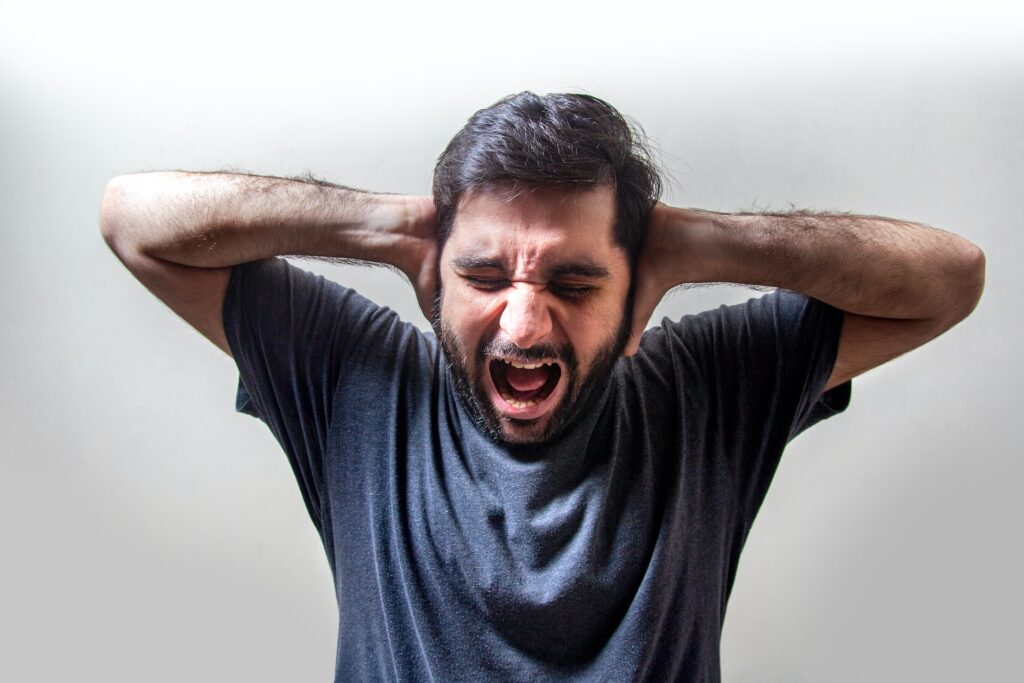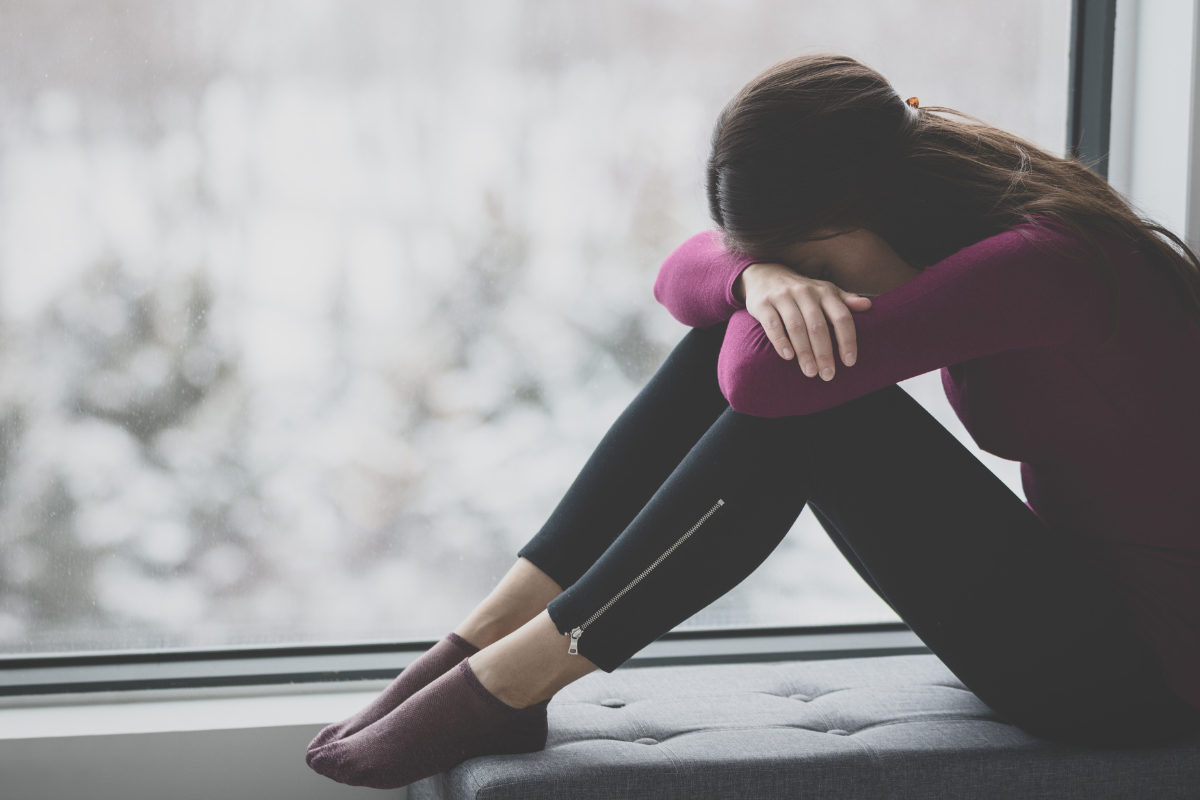Anxiety disorder: How to deal with it

Anxiety is something that we all experience in one form or another, but for some it can be debilitating. Anxiety disorders are a group of mental health conditions that can cause intense feelings of fear, worry, and apprehension. If you or someone close to you is struggling with anxiety disorder, it can be difficult to know how best to help. In this blog post, we will discuss some ways to cope with anxiety disorder so you can start taking steps towards a healthier and more fulfilling life. We will look at how to recognize the signs of anxiety disorder, tips for managing symptoms, and resources to help you get the support you need. With the right tools and knowledge, living with anxiety doesn’t have to be a burden. Let’s take a closer look at how to cope with this condition.
Contents
What is an anxiety disorder and what are the symptoms
Anxiety disorder is a type of mental illness that causes persistent and excessive anxiety and fear. People with anxiety disorders often have physical symptoms such as a fast heart rate and sweating. They may also have difficulty sleeping, feeling restless or irritable, and have trouble concentrating. Anxiety disorders can interfere with school, work, and personal relationships. There are several different types of anxiety disorders, including generalized anxiety disorder, panic disorder, social anxiety disorder, and phobias. Symptoms of anxiety disorders vary depending on the type of disorder. Treatment for anxiety disorders often includes medication, therapy, or both. It is important to seek help early if symptoms of anxiety become disruptive. With treatment, people can learn to manage their anxiety and lead a happier and healthier life.
Anxiety disorders are one of the most common types of mental health issues, affecting around 40 million adults in the United States. It is also estimated that 1 in 3 people will experience an anxiety disorder at some point in their life. Symptoms of anxiety can include restlessness, racing thoughts, difficulty concentrating, and feeling overwhelmed or on edge. Physical symptoms such as sweating, trembling, and a rapid heartbeat may also be present. People with anxiety disorders often have difficulty sleeping due to worrying or find it hard to relax and let go of their worries.
How to deal with anxious thoughts and feelings
Anxiety is a normal emotion that everyone experiences at some point in their life. However, for some people, anxious thoughts and feelings can become so overwhelming that they interfere with everyday activities. If you’re struggling to cope with anxious thoughts and feelings, here are some tips that may help:
– Identify your triggers. What situations or events tend to make your anxiety levels spike? Once you know what your triggers are, you can start to avoid them or prepare for them in advance.
-Challenge your anxious thoughts. When you’re anxious, your thoughts can sometimes become distorted. Try to take a step back and examine your thoughts objectively. Are they really true? Are you overreacting?
-Focus on the present moment. anxious thoughts often focus on future events that may never even happen. Instead, try to focus on the here and now. What are you doing right now? What can you see, hear, and feel in this moment?
-Breathe deeply. When you’re feeling anxious, your breathing may become shallow and rapid. Taking deep, slow breaths can help to calm your body and mind.
-Practice relaxation techniques. There are many different relaxation techniques that can help to reduce anxiety levels, such as progressive muscle relaxation or guided meditation.
Dealing with anxious thoughts and feelings can be difficult, but it’s important to remember that you can take steps to manage your anxiety. If your anxiety is starting to interfere with your life, talk to your doctor or a mental health professional for more help.
Coping mechanisms for when anxiety disorder strikes
Anxiety is a feeling of uneasiness, worry or fear. It is perfectly normal to feel anxious at certain times during the day; however, for some people anxiety can become overwhelming. anxiety disorders are the most common mental health disorder in the United States, affecting 40 million adults each year. While there is no one-size-fits-all solution for anxiety, there are some coping mechanisms that can help when anxiety strikes.
One way to deal with anxiety is to take care of your physical health. Exercise releases endorphins, which have mood-boosting effects. Furthermore, anxiety can often be triggered by dehydration or low blood sugar levels, so it is important to stay hydrated and eatregular meals. Other coping mechanisms include deep breathing exercises, progressive muscle relaxation and mindfulness meditation. By experimenting with different techniques, you can find what works best for you and start to take control of your anxiety.
Ways to reduce stress in your life
Everyone experiences stress from time to time, but chronic stress can lead to serious health problems. If you’re struggling to manage stress, there are a number of things you can do to reduce its impact on your life. First, make sure to schedule time for relaxation and fun activities that you enjoy. It’s also important to eat a healthy diet, get regular exercise, and get enough sleep. Additionally, try to avoid caffeine and alcohol, as these can further increase feelings of stress. If you find yourself getting overwhelmed, take a deep breath and focus on the present moment. Remind yourself that you can handle whatever comes your way. By making small changes in your daily routine, you can significantly reduce stress and improve your overall well-being.
Finally, if you’re feeling overwhelmed by anxiety or stress, make sure to talk to a mental health professional. They can help you develop effective coping strategies and provide support when needed. Remember, anxiety and stress are manageable – with the right help and techniques, you can take control of your life again.
Taking care of yourself when you’re struggling with anxiety disorder
It’s estimated that anxiety disorders affect 40 million adults in the United States, making it the most common mental health condition. If you’re one of the millions of people struggling with anxiety, it’s important to take care of yourself and seek professional help if necessary. There are several things you can do to ease anxiety symptoms and provide self-care. Getting regular exercise, eating a balanced diet, and getting enough sleep are all crucial for managing anxiety.
Additionally, taking breaks throughout the day, practicing relaxation techniques, and setting aside time for hobbies and activities you enjoy can help reduce stress and anxiety. If your anxiety is severe or interfering with your daily life, it’s important to seek professional help. A therapist can help you identify and manage anxiety triggers, develop coping skills, and provide support. With proper care, anxiety disorders are treatable and manageable.
Conclusion
Anxiety disorders are the most common mental illness in the United States, affecting 40 million adults. If you or someone you know is struggling with anxiety, there are ways to cope and get help. The coping mechanisms we’ve shared should provide a starting point, but don’t hesitate to reach out for professional help if the symptoms persist or become too overwhelming. Reducing stress in your life can be difficult, but it’s important not to neglect your well-being when you’re dealing with a mental health condition. Taking care of yourself should be one of your top priorities. What have you found helpful in managing your anxiety?










